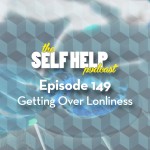Affairs – Why Do We Cheat?
This week Ed and I got a message asking if we could have a look at why do we cheat in relationships.
“Why do men cheat? Why do women cheat? Is it such a bad thing? Is cheating ever good for a relationship? How should we react when our partner cheats? Should we take it personally and let it affect us and our relationship, if it was simply just a case of ‘living in the present ( ! )’ and being in the moment, living life and following what the chemicals in your brain are telling you to do? Can you learn to be faithful? If so how do you learn to want to be faithful?
Let’s have a look one bit at a time.
Why do we cheat in relationships?
Well statistics suggest that 61% of people have affairs. This would suggest for the majority of people unfaithfulness is normal behaviour.
Why do men cheat?
Much research suggests that unfaithfulness is often genetic up to 63% of men are expected to be genetically predisposed to spread their genes. It is assumed that the male of the species is programmed to have sex with as many women as possible. Chemically it is suggested that the majority of men who have affairs are driven by testosterone and the high of sexual orgasm.
Why do women cheat?
For women research suggests that around 40% of women are genetically predisposed to unfaithfulness but whereas men are driven by testosterone, women are more likely driven by oxytocin. This is the bonding chemical that is released by the brain in response to cuddling, fondling, kissing and sexual contact.
Is it such a bad thing?
This is in the eye of the beholder. For some open relationships are good and add spice and excitement to their relationship. There are no rules here. If you are naturally faithful and your partner is not, all you will do is create pain and heart ache for them and perhaps children and in-laws.
Can cheating be good for a relationship?
I have worked with couples where one person became so involved with work or other issues that the gradually paid less and less attention to their partner who in the desperate need to get some attention turned to another person to give them a sense of self worth.
If the result of an affair is that your partner now pays you the attention that you deserve you could decide that it was a good thing. If on the other hand it leaves you ruminating on what ‘they’ we’re doing it will become totally destructive.
How should you react when your partner cheats?
Well, either you decide that it is now all over and separation is the only option or you feel that it is worth fighting for. If it is worth it then you probably need therapy – That’s where I come from.
Should we take it personally?
Yes… Either you chose the wrong person or something happened to make them the wrong person and what they have done does affect you and how you feel about who you are?
How do you learn to be faithful?
This is the rule of…
…What you feed grows and what you starve dies
If you want your relationship to grow then feed it. If you starve it then it will die. It is a choice.
How do you learn to be faithful?
Pain or awareness. If you are not aware enough to nurture your relationship then you will experience the pain of it failing.
Perhaps I should finish this with the idea that if you want your relationship to work you need to agree your relationship contract before you begin it. Fidelity is a contractual agreement. If you are unfaithful the contract is over. Unless you have an open agreement cheating is definitely out.
Take care
Sean X



Trackbacks & Pingbacks
[…] Sean wrote a blog post on this subject. Have a read… […]
Leave a Reply
Want to join the discussion?Feel free to contribute!